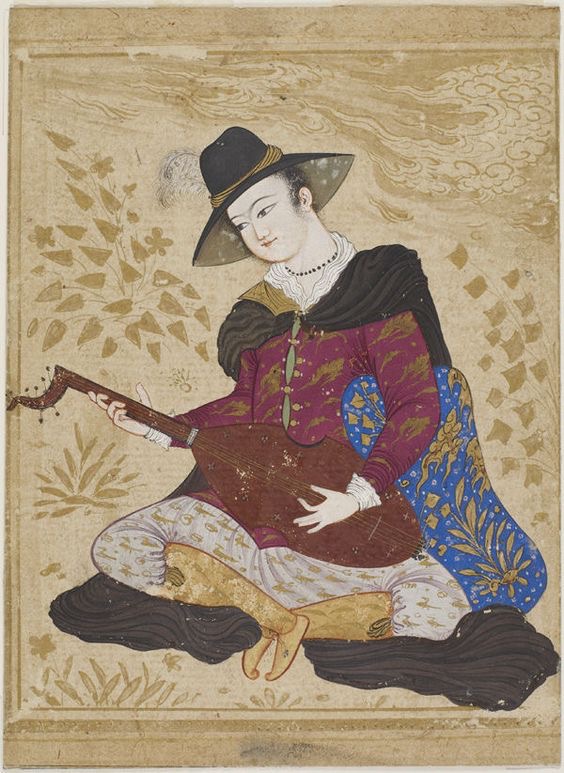Persian man dressed as a European playing a vihuela
(1634) - Smithsonian (unconfirmed
instrument: vihuela de mano | century: 17cent/2/mid | catalogue nº: 17-211

Artwork
Creator Abbasi, Reza
Medium Artwork: Painting
Location
City | Region Persia | Old kingdom Persia
Characteristics
| Body Corners | Strings 5 strings | Neck Long | Pegbox Sickle |
| Bridge Tailpiece | Frets No | Back Not visible | Pegs Lateral |
| Technique Plucked fingers equal p+i |
Commentary
ARTWORK
Persian painting of a Persian man dressed as a European, seated on the ground playing a vihuela.
INSTRUMENT
The vihuela has a long almond-shaped elongated body with cornered waists, quite anachronistic at the time the painting was executed, thought to be from c. 1634. The soundboard appears to have intarsia of the kind found in early 16th-century vihuelas. Its soundhole(s) are hard to discern from the illustration. It appears to have five strings, and a movable bridge with the strings attached to a button at the bottom of the instrument. There are no frets visible and seven lateral pegs are visible on the sickle-shaped peg box.
IMAGE
https://commons.wikimedia.org/wiki/File:Reza_Abbasi_painting_of_Dutch_musician_with_viol.jpg
Reproductions
https://commons.wikimedia.org/wiki/File:Reza_Abbasi_painting_of_Dutch_musician_with_viol.jpg